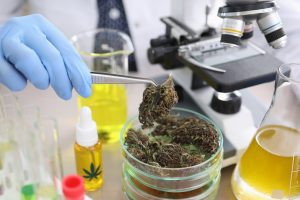Legal Blog
Cannabis Manufacturing Complicated by New Jersey Industrial Site Recovery Act (ISRA) and Potential Environmental Liability
 New Jersey’s Industrial Site Recovery Act (ISRA) may impose significant environmental liabilities on unsuspecting Class 2 Cannabis Manufacturers, including liability for historical contamination. ISRA requires investigation and remediation of all historical contamination, whether or not caused by the manufacturer, each time certain business goes through a change of ownership or control or ceases operations including as a result of a lease termination, subject to specific exceptions and limitations. Cannabis businesses that may be subject to ISRA will want to take additional precautions through due diligence, contracting, and perhaps even obtaining environmental insurance, to limit potential liability.
New Jersey’s Industrial Site Recovery Act (ISRA) may impose significant environmental liabilities on unsuspecting Class 2 Cannabis Manufacturers, including liability for historical contamination. ISRA requires investigation and remediation of all historical contamination, whether or not caused by the manufacturer, each time certain business goes through a change of ownership or control or ceases operations including as a result of a lease termination, subject to specific exceptions and limitations. Cannabis businesses that may be subject to ISRA will want to take additional precautions through due diligence, contracting, and perhaps even obtaining environmental insurance, to limit potential liability.
However, ISRA does not apply to all businesses or transactions, and will not apply to all Class 2 Cannabis Manufacturers. In fact, the provisions of ISRA only apply if the following the place of business must have a North American Industry Classification System (NAICS) code listed in N.J.A.C. 7:26 B – Appendix C of the regulations implementing ISRA. A Class 2 Cannabis Manufacturer may fall under a few different NAICS codes, including:
- 311812 – Commercial Bakeries: This industry comprises establishments primarily engaged in manufacturing fresh and frozen bread and bread-type rolls and other fresh bakery (except cookies and crackers) products.”
- 311991 – Perishable Food Manufacturing: This industry comprises establishments primarily engaged in manufacturing perishable prepared foods, such as salads, sandwiches, prepared meals, fresh pizza, fresh pasta, and peeled or cut vegetables.
- 325411–Medicinal and Botanical Manufacturing: This industry comprises manufacturing uncompounded medicinal chemicals and their derivatives (i.e., generally for use by pharmaceutical preparation manufacturers) and/or Grading, grinding, and milling uncompounded botanicals
- 424590– Other Farm Product Raw Material Merchant Wholesalers: This industry comprises establishments primarily engaged in the merchant wholesale distribution of farm products (except grain and field beans, livestock, raw milk, live poultry, and fresh fruits and vegetables).
It is possible that a business will have multiple operations at a single location, and then the dominant use must be determined for purposes of ISRA. The only ISRA-subject code noted above is 325411 (Medicinal and Botanical Manufacturing), but other ISRA-subject codes not listed above could apply in certain situations. Class 2 Cannabis Manufacturers with medicinal and botanical manufacturing as the dominant use may need to comply with the requirements of ISRA each time a change of ownership or operations, or a cessation of operations, including a lease termination, occurs. These businesses should protect themselves by conducting due diligence on historical contamination, carefully allocating environmental risks and liabilities in leases and other real estate contracts, and perhaps even obtaining pollution legal liability or other environmental insurance. Competent local environmental attorneys can assist with the evaluation of whether ISRA applies, and, if it does, advise on risk mitigation.
ABOUT MATTHEW KARMEL
 matthew.karmel@offitkurman.com | 973.245.9905
matthew.karmel@offitkurman.com | 973.245.9905
Matthew Karmel is passionate about sustainability and the environment and has been widely recognized for his influence and leadership in relation to the environment and the circular economy.
As the head of the firm’s Environmental and Sustainability Law practice area, Mr. Karmel represents a wide variety of businesses and individuals in connection with the full range of environmental matters.
